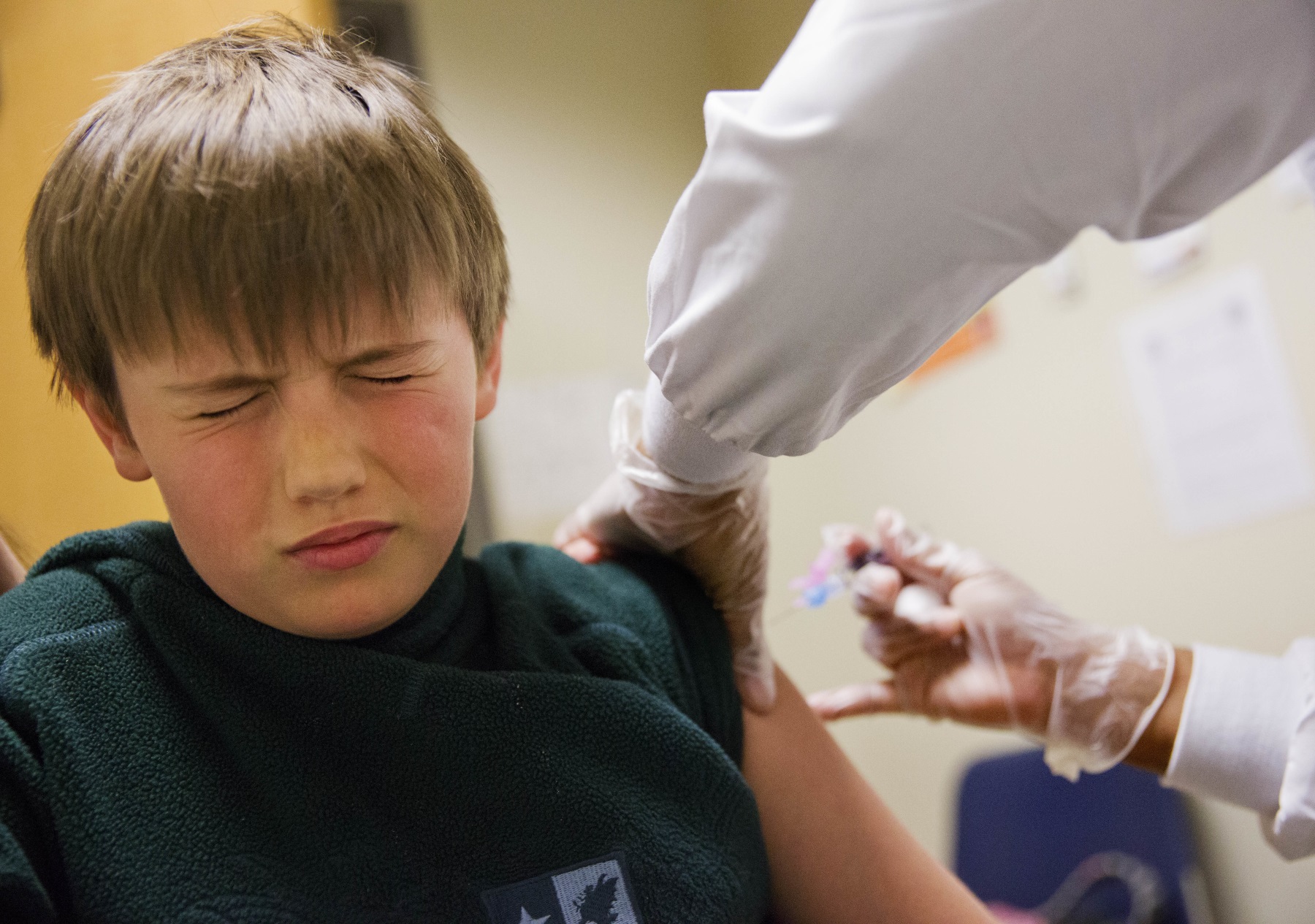Georgia public health officials have now confirmed a total of 79 influenza-related deaths this flu season, including three children, as of Friday.
That total easily surpasses the 58 deaths the state reported in 2009, the first year that all flu deaths were required to be reported to Georgia Public Health.
The Department of Public Health on Friday also reported 165 hospitalizations in the eight-county metro Atlanta area during the week of Feb. 4 through Feb. 10. That’s the highest number of flu hospitalizations reported this season.
Across the state, hospital emergency rooms are dealing with the influx of patients by adding extra staff and resources, the Georgia Hospital Association said earlier this week.
“Hospitals are working diligently to make sure each patient receives timely and efficient care,” said GHA President Earl Rogers in a statement. “The health and safety of all patients is a priority for hospitals. Hospitals have made modifications such as changing visiting hours, implementing the use of mobile units and providing additional staff to protect those patients at greatest risk of the flu.”
Nationally, the deaths of 22 more children were reported Friday by the Centers for Disease Control and Prevention, bringing the total of kids who have died to 84 since October.
Three of four children who died had not received the flu shot, the CDC’s acting director said.
About half of the children who died had underlying medical conditions that made them more vulnerable to severe complications from the flu, and 60 percent had been admitted to the hospital before they died, WebMD reported Thursday.
The children ranged in age from 2 months to 17 years.
“We continue to recommend parents get their children vaccinated even though it’s late in the season,” said Dr. Anne Schuchat, the acting CDC director.
The season may continue for several more weeks, she added.
The vaccine’s performance in children was “better than we expected,” Schuchat said.
This year’s vaccine is about 25 percent effective against the predominant H3N2 strain of flu that is causing most illnesses and deaths, and 36 percent effective against all circulating flu strains, the New York Times reported.
But in children, the effectiveness rate was 59 percent.
CDC spokeswoman Kristen Nordlund said Friday that flu activity is still high, but it did not increase significantly over the past week.
“While this may mean that we’ve peaked, we won’t know more until we see the data for the coming weeks,” Nordlund said.
Still, Schuchat said levels of flu-related illness across the nation are reaching peaks observed during the H1N1 pandemic season in 2009, though this year’s flu is not pandemic, CNN reported.
“Hospitalization rates are significantly higher than what we’ve seen for this time of year since our current tracking system began almost a decade ago,” Schuchat added.
In 48 states, flu activity is still widespread, with Hawaii and Oregon the exceptions.
Andy Miller is editor and CEO of Georgia Health News






